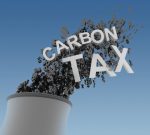George David Banks
U.S., Republic of Korea Nuclear Cooperation Benefits Both Countries
With more than 50 years of peaceful nuclear energy cooperation and friendship, Washington should demonstrate that close bond by considering requests from Seoul to expand the terms of bilateral cooperation in civilian nuclear energy. With the decline of its own domestic civil nuclear program, the United States needs Seoul’s strategic vision and prowess to help maintain an influential voice in global nonproliferation and nuclear safety matters.
Exxon didn’t oppose sanctions – it opposed unilateral sanctions
Published in The Hill
George David Banks sets the record straight on Secretary of State nominee Rex Tillerson.
George David Banks sets the record straight on Secretary of State nominee Rex Tillerson.
The U.S.-Republic of Korea Nuclear Relationship – An Indispensable Alliance
With the decline of its own civil nuclear program, the United States needs ROK’s nuclear prowess to strengthen its own market position and help uphold its nonproliferation and safety goals, especially with the looming threat of a Chinese commercial nuclear monopoly. Furthermore, the ROK provides the United States with additional foreign commercial opportunities and critical added investment.
USA Today Viewpoint: Trump’s Instincts on Russia Are Correct
Published in USA Today
As America allied with the Soviet Union to defeat Nazi Germany, Washington should seek similar cooperation with Moscow to defeat ISIL.
As America allied with the Soviet Union to defeat Nazi Germany, Washington should seek similar cooperation with Moscow to defeat ISIL.
Clinton Misses Point of Trump’s Tweet on China’s Climate “Hoax”
Published in Real Clear Energy
Conspiracy theories abound in the world of climate politics.
Conspiracy theories abound in the world of climate politics.
Trump’s Foreign Policy Will Be Proven Right
Published in Real Clear Politics
Many of Donald Trump’s comments on foreign relations have left experts and former policymakers scratching their heads, and, in some cases, hostile to his candidacy for president.
Many of Donald Trump’s comments on foreign relations have left experts and former policymakers scratching their heads, and, in some cases, hostile to his candidacy for president.
Why a Price on Carbon Is Unlikely in the U.S. Anytime Soon
Published in Wall Street Journal
George David Banks cites a number of obstacles, starting with GOP opposition in Congress.
George David Banks cites a number of obstacles, starting with GOP opposition in Congress.
Trump’s instincts are correct on Russia
Published in Washington Examiner - Scary. Dangerous. Insane. Those are the words critics, including some key conservatives, use to describe Donald Trump’s informal courtship of Russian President Vladimir Putin. For the vast majority of America’s establishment, Trump’s remarks are simply unthinkable. But what if Trump is on the right track? What if the experts are missing what’s truly at stake for long-term U.S. national security?
Congressional Letter: Carbon tax would harm U.S. industrial competitiveness with no environmental benefit
In a letter to Senator Roy Blunt (R-MO), ACCF Executive Vice President George David Banks highlights ACCF support for climate mitigation and adaptation, but opposes policies that damage the industrial competitiveness of America and harm our middle class and poor.
Pursuing a More Comprehensive Approach toward Southeast Asia is Critical to Preserving U.S. Influence...
The Great Game between China and Japan, the Role of Infrastructure Development, and the American Wild Card
“Conservative” folly: How the carbon tax undermines GOP climate policy
Published in The Hill
Most observers would assume that the biggest impediment to creating a comfort zone for the GOP on energy and climate policy would be the climate skeptic or denier, as many far left environmentalists would say. Surprisingly, this isn’t the case.
Most observers would assume that the biggest impediment to creating a comfort zone for the GOP on energy and climate policy would be the climate skeptic or denier, as many far left environmentalists would say. Surprisingly, this isn’t the case.
ACCF Policy Alert No. 2: Why Climate Skeptics Should Not Object to EPA’s HFC...
The Obama administration’s climate change agenda is highly controversial. Current greenhouse regulations impacting existing and new power plants will certainly drive up energy costs, distort electricity markets, and harm economic growth and job creation in the United States. EPA’s SNAP program, however, is supported by the regulated industry and carries substantial benefits for U.S. industry by allowing it to leverage its current competitive advantage in the HFC replacement market.
Clean Power Plan Subsidies for Wind Reinforces Arguments Against Renewing the PTC
While the credit has received broad bipartisan support in the past, it has come under increased scrutiny for distorting electricity markets and undermining the competitiveness of baseload power generation, including nuclear reactors. EPA’s recent Clean Power Plan (CPP) – which forces states to cut an average of 32 percent of their carbon emissions before 2030 — also calls into question the continued need for the tax credit because it provides substantial subsidies to wind and locks in wind carve-outs under state renewable portfolio standards.
Success Of U.S. Climate Pledge Depends On Future GHG Regulation Of U.S. Industry, Other...
According to several independent studies and analyses, a large gap exists in the U.S. climate pledge to the United Nations. Simply put, the greenhouse...
Managing Pacific Rim Security Risks With U.S. Energy
INTRODUCTION
Chinese policymakers are grappling with the country’s growing dependence on oil imports. Self-sufficient in crude as recently as the early 1990s, China is expected...
ACCF Policy Alert No. 1: The Death of American Uranium Enrichment?
On September 11 of this year, the Obama administration announced that it would take immediate measures to end funding of the only U.S. uranium...

















